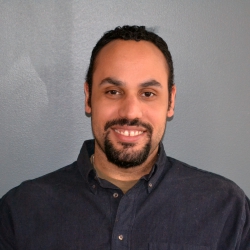Jun
24
2013

Written by Sean Thomas-Breitfeld
Like many other LGBT people, I’m eagerly awaiting the Supreme Court’s rulings on same-sex marriage. If the Court supports the right to marry, it will be very validating for me and my partner to be able to have our relationship legally recognized throughout this country. But beyond this huge symbolic value, winning on marriage will make it possible for the movement to finally start looking beyond marriage to address the many other barriers to full inclusion in the fabric of American society.
Marriage equality won’t suddenly make it safe for my partner and I to walk hand in hand, even though we live in the heart of New York’s Greenwich Village, just blocks from where the city’s Pride parade will pass this weekend. A string of anti-gay attacks in our neighborhood last month, including a murder, were a troubling reminder that roughly one-third of LGBT people have been threatened or attacked just because of their sexuality or gender identity.
Also, marriage rights won’t protect the homes and livelihoods of LGBT people living in the 29 states with no protections against discrimination in housing and employment. In fact, the patchwork of conflicting laws could mean that LGBT people would risk being fired for coming out at work when they try to access the benefits they’re entitled to as married couples. And people will still have to worry that they’ll have little protection if they receive “adverse treatment” when trying to rent an apartment as a married couple. Even in states with non-discrimination laws on the books, subtly unfair treatment is – and will still be – a fact of life for LGBT people.
The only silver lining to the fact that the struggle for full inclusion will continue past marriage equality is that it puts LGBT people in the same boat as many other communities still facing both subtle and overt bias and discrimination. Fortunately, LGBT movement leaders have already built relationships with other progressive constituencies and movements. Based on research that BMP conducted, the brightest examples of alliance building are occurring on the local and state level. Beyond the beltway, LGBT groups tend to have a broader social justice policy agenda and reported developing partnerships to work on immigrant rights, economic justice and workers’ rights more than national organizations. When local and state level groups operate across issue they’re both pragmatically building the power needed to sustain wins, and also reflecting the progressive mindset of LGBT Americans; a recent Pew poll shows that LGBT people are more likely than the general public to support a range of progressive causes, like government services, gun control and immigrant rights.
As LGBT people look beyond marriage to issues like “employment rights,” which was ranked as a higher priority than marriage in a recent poll of LGBT people, we would do well to recognize the other communities who still don’t get treated or paid fairly on the job, and include them in the struggle. As a person of color, I am continually reminded that racial bias and discrimination still exists four decades after major civil rights legislation was supposed to give us equality and opportunity. In another two or three decades, I expect that these rulings will be likened more to the Brown v. Board of Education ruling of 1954, which was a precedent for the Montgomery Bus Boycott in 1955 that helped launch the movement to defeat Jim Crow, than the Loving v. Virginia ruling of 1967, which struck down the remaining bans on marriage between blacks and whites nearly three decades before public approval of my parents’ interracial marriage surpassed fifty-percent.
History has shown that legal change isn’t enough to solve injustice and policies can get rolled back by reactionaries, especially when they get framed as “special” protections or rights. Now is the time to seize the opportunity for multiple communities – LGBT people, poor people, women, people of color, immigrants, etc. – to fight and win together in the face of social and economic injustice. In the next phase of our movement, LGBT people will have to build a broad enough coalition to maintain the gains around marriage equality, secure protections against discrimination, and advance social changes that make it possible for all of us to be fully included in the American Dream.

2 thoughts on “For Full Inclusion and Equality, Must Look Beyond Marriage”
Comments are closed.